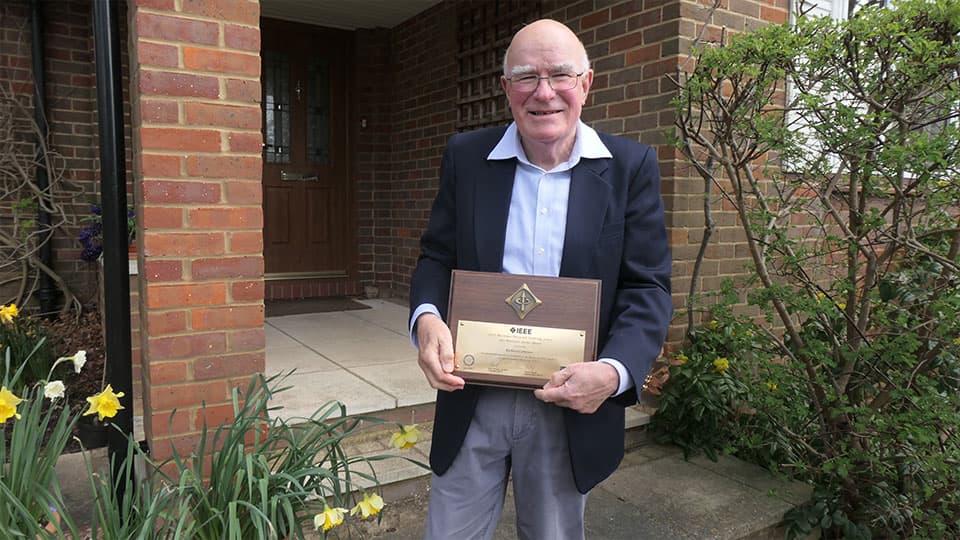After graduating in 1969, Richard joined Marconi Space and Defence Systems, Stanmore, U.K. His responsibilities included small earth station design, telecommunication satellite system analysis, and computer-aided microwave circuit and component design for spacecraft telecommunication subsystems.
He joined the European Space Agency's technical establishment (ESTEC, The Netherlands) in 1975. Richard was involved in the design and build of the passive microwave equipment for the telecommunications systems on board a large variety of operational and prototype spacecraft, ranging from low-earth orbiting (LEO) earth resources platforms (ENVISAT), navigation satellites (Galileo), geostationary orbiters (e.g. the European Communication Satellite, Inmarsat, Television Broadcast), to deep space explorer missions (CASSINI).
During his time at ESTEC, a major portion of his work was concerned with the development of advanced techniques for the design of microwave filters, multiplexers, and other passive equipment, which have very special requirements in terms of electrical performance, mass, temperature stability and ruggedness. This research work has resulted in the publication of many articles in technical journals, particularly the American IEEE journal Microwave Techniques and Technology (MTT). It has also been recognised by MTT with the winning of the prestigious Microwave Pioneer Award, of which only one is awarded every year amongst over 10,000 members.
In 1984, he was involved in the establishment of a European branch of the Com Dev Company of Canada, U.K. As Technical Director and Chief Scientist he continued his research work and co-authored a book ‘Microwave Filters for Communication Systems, Fundamentals, Design and Applications’, now in its second edition.
He is a fellow of the U.K. Institution of Engineering and Technology (The IET, formerly the IEE).
Richard received a BSc telecommunications and electronic engineering from Loughborough University in 1969, when the university was known as Loughborough University of Technology, on a four year ‘Thin Sandwich Course’ sponsored by the Marconi Company of Chelmsford.
Congratulations on your achievement Richard.
